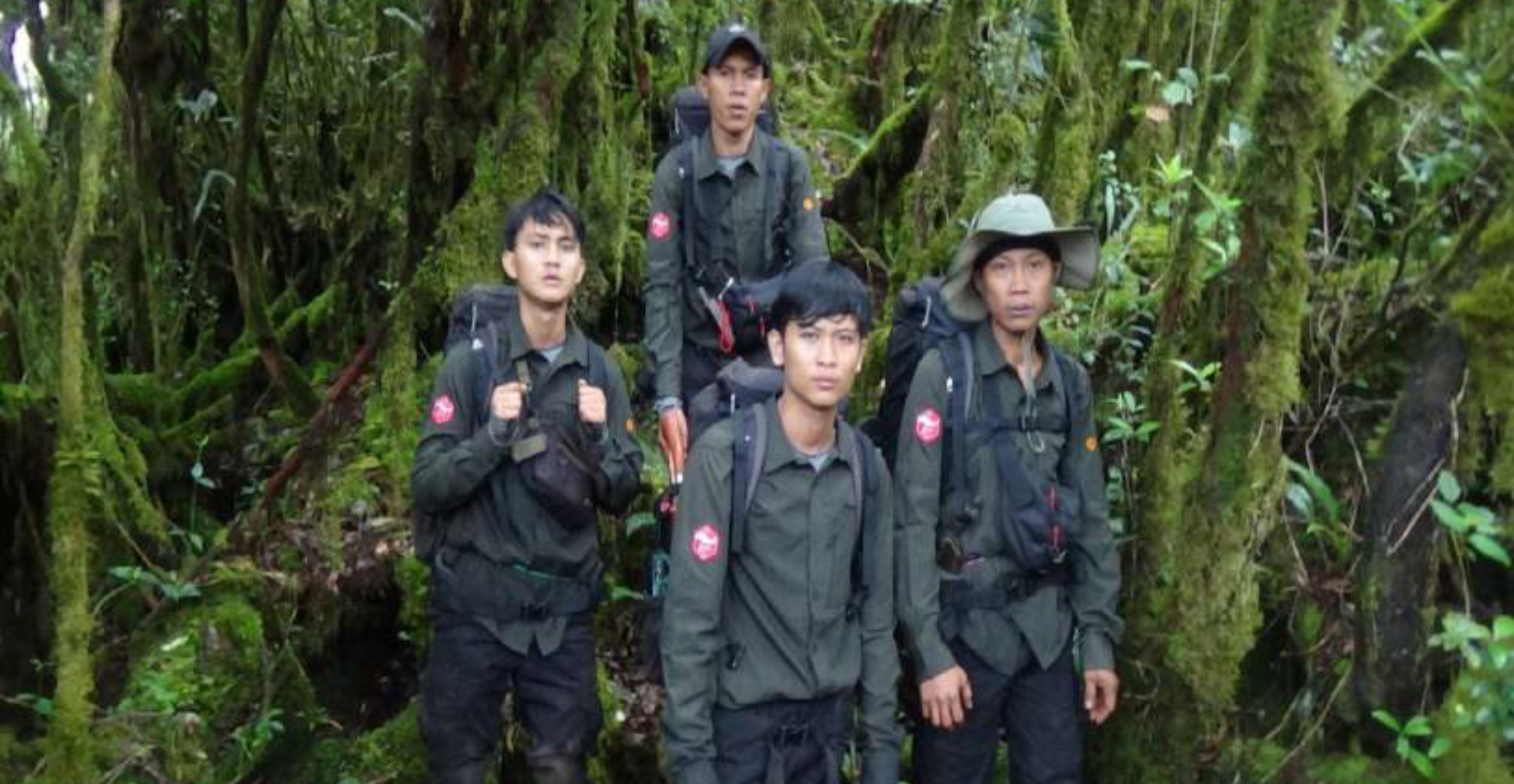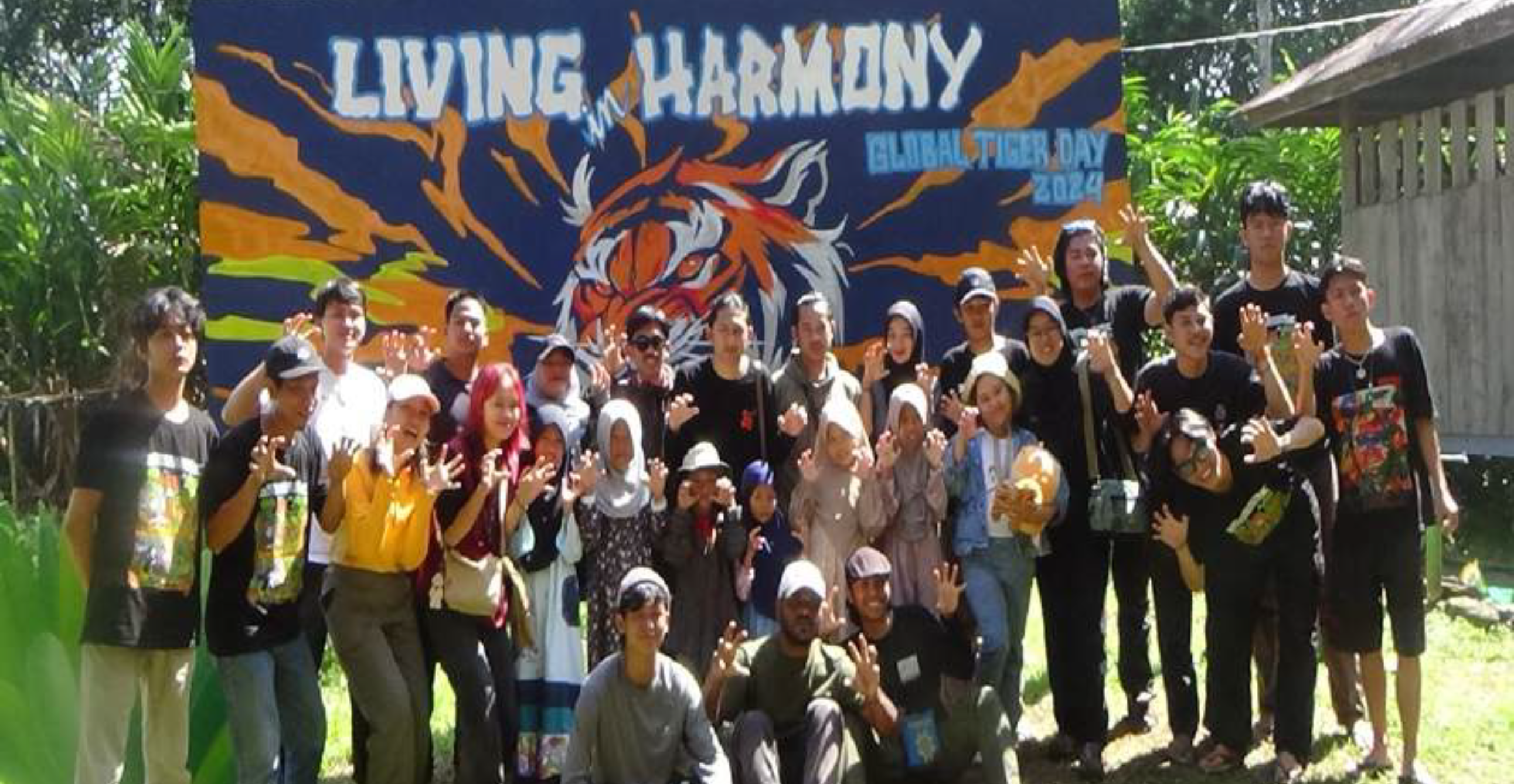Imagine walking through a field at dusk and spotting a flash of orange and black among the trees—a Sumatran tiger. This has become a more familiar reality for residents near Sumatra’s forests as more tigers have been sighted near villages and plantations over the past six months.
Rising Encounters
In early 2024, conservation patrols revealed a troubling trend: Sumatran tigers are increasingly appearing near human settlements in North Bengkulu and Lebong Regencies of Sumatra, driven by prey scarcity and habitat challenges. Over the past six months, illegal hunting of prey animals has made food harder to find in the forest, pushing tigers to venture into plantations and village outskirts. This shift underscores the urgent need for conservation efforts to address both poaching and human-tiger conflict, as local communities grapple with the proximity of these predators.

Sumatran Tiger captured on camera trap by F&F
Understanding the situation
Recognising that increased tiger sightings near human settlements pose risks to both people and tigers, the team has been leveraging their network of community contacts to gather insights.
Since 2020, our implementing partners in Sumatra, Lingkar Inisiatif, have engaged local Islamic leaders from the Indonesian Ulema Council to support outreach efforts. This approach allows them to communicate religious prohibitions on hunting and trading wildlife while fostering open discussions about wildlife conflicts. The strong relationships built through this approach also enable more thorough investigations into illegal hunting and wildlife trade.
In the first half of 2024, the team had already identified five hunters. These individuals confirmed that tigers had been frequently sighted near community settlements prompting more residents to request tiger hunting near their villages and plantations. Additionally, rising demand for tiger products has also driven up prices, adding further motivation to poach Sumatran tigers. By understanding these factors, which increase poaching incentives, the team can focus on preventive measures rather than relying solely on enforcement after poaching incidents occur.

Socialization of Fatwa MUI in North Bengkulu Regency. Image from Lingkar
Preventative and Corrective Responses
Preventative and corrective measures have been taken to decrease prey hunting, minimise conflict, and ultimately reduce the risk of tiger poaching.
Community Outreach: Early intervention includes educating communities about how hunting prey species reduces tigers’ natural food sources, driving them into settlements in search of livestock. This year, the team has already reached hundreds of people in high-poaching areas to raise awareness on tiger protection laws and handling tiger encounters. In July, a World Tiger Day celebration brought together students, forest groups, the Governor, and other officials for a shared commitment to protecting Sumatra’s tigers and promoting community safety.
Trap and release: Our implementing partners, Lingkar Inisiatif have collaborated with the local Natural Resources Conservation Agency (BKSDA) to set up tiger traps with surveillance cameras in two locations following reports of Sumatran tigers entering residential areas and preying on livestock. By working with communities to safely relocate the tigers back into their forest habitats, local residents feel involved and respected, reducing the likelihood that they’ll take independent action like hiring poachers.
Forest patrols: Swift, intelligence-led forest patrols are led by Lingkar, National Park officials and former hunters to locate poaching hotspots. The team dismantled 26 traps, including 20 nylon snares, 2 interlocking snares, and four glue traps, reducing the immediate threat to tigers.

Lingkar Indonesia Patrol Team
Tiger sightings as a wonder, not a threat.
Our dedicated team is working tirelessly dismantling traps, and addressing the root causes of poaching. Every donation helps keep tigers safe in their natural habitats and strengthens the bond between local communities and wildlife. Together, we can ensure that sightings of these magnificent creatures remain a wonder, not a threat. Please consider donating today.

2024 participants of Global Tiger Day celebrations in Sumatra from Lingkar





